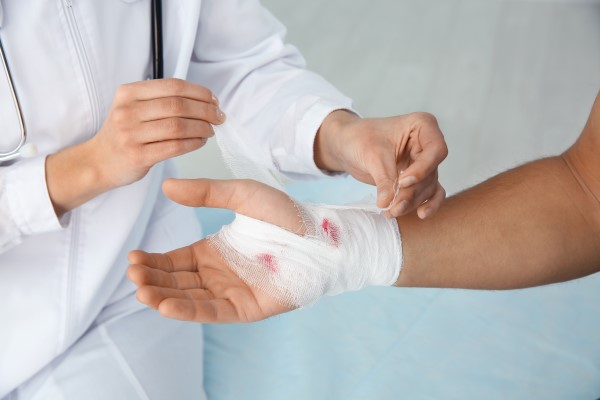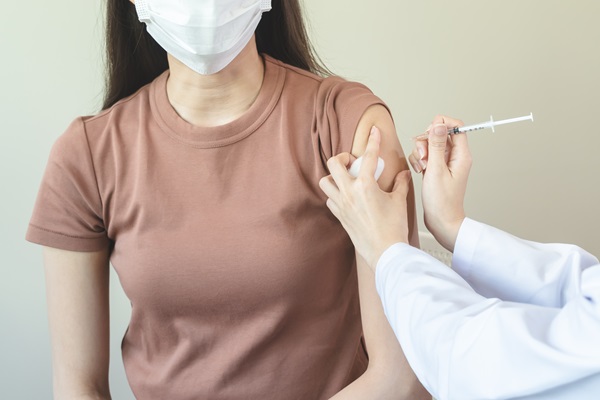Laceration Care from an Urgent Care Clinic

It is always prudent to seek proper laceration care after a minor injury, such as a laceration. Urgent primary care includes the treatment of such an injury. Each situation differs from another. Making sure that you know proper first aid will help you make the right decision in an urgent situation. If you want to learn more about laceration care straight from an urgent care clinic, here are the facts.
The first steps
The moment the patient is cut, the first thing to do is stop the wound from bleeding. The patient or someone with the patient should place pressure on the wound. A clean towel, tissue, or bare hands is enough to help do this. If the laceration is spewing blood or still bleeding after 10 minutes of continuous pressure, seek urgent care.
When self-treatment is acceptable
Anyone can treat most minor lacerations without formal medical care. Once the bleeding stops, the patient has to clean the wound with warm water and mild soap. Then, an application of a topical antibiotic follows. The patient should wrap a sterile bandage around the laceration.
Urgent laceration care is an order if the wound is from a rusted object, an animal or human bite, and other dangerous items. The patient should also seek urgent care if the wound is deep or there is damaged bone or muscle. If the patient has not received a tetanus booster shot in the past five years, the patient should leave for urgent care. Covering the wound and applying pressure on it during transit is ideal.
When laceration care includes antibiotics
Most surface injuries need minor laceration care in the form of wound cleaning and dressing. These lacerations heal on their own if the patient has a normal immune system and a clean living space. The patient will need antibiotics if the wound is deep, has jagged edges, or is on places with poor circulation, such as the feet. It also needs antibiotics if it was in contact with infectious materials.
Some doctors include antibiotics in the laceration care for senior patients or patients with autoimmune diseases (HIV/AIDS). These patients have weak immune systems. Their wound must heal right away. This will prevent the infection from worsening and becoming life-threatening.
Reasons for closing lacerations
In laceration care, closing the laceration may have to happen. The doctor may suture, use tissue glue or apply steri-strips. Closing lacerations is vital to prevent infection. It also helps restore the function of the area. If the muscles or tendons are cut, the doctor must repair them. Wounds that do not receive proper tissue repair may not function the same way again.
Doctors close lacerations to bring back the pre-injury appearance. The aesthetic value of these areas is important for the patient’s self-image. Doctors should be careful when stitching the lacerations on the face, neck, arm, hands, legs, or feet. There should be minimal scarring in these areas.
Getting immediate laceration care will help you recover sooner
Lacerations vary in size and depth. The only way to preserve the tissue and prevent complications is to have proper laceration care. You can start this during an emergency until you arrive at the urgent primary care facility. Calling the emergency number in your area can provide you with immediate laceration care.
Get more information about Texas Urgent Care & Imaging Center in New Caney at https://tx-urgentcare.com.
Check out what others are saying about our services on Yelp: Read our Yelp reviews.
Recent Posts
Flu shots protect children from common strains of influenza. No one wants to be stuck in bed dealing with the symptoms of this common illness. A flu shot can help prevent complications and reduce the chances of catching the flu in the first place. A primary care or urgent care doctor can further discuss the…
Consulting your primary care physician, or "PCP," regularly can help ensure good health. This typically means every three years for most healthy adults under age 50. After your 50th birthday, annual physicals are advised. But what if you have a minor illness? It can be difficult to tell whether you should visit your PCP. This…
Immunizations are an important part of primary care. Not only can they help prevent illness, but they can also reduce the chance of complications should you get sick. Whether you want to get ahead of flu season or whatever else may come your way, your primary care doctor can provide the vaccinations you need.When many…
A walk-in clinic can provide you with the care that you need without the stress of waiting for an emergency doctor in a crowded room. Receiving immediate care is important whenever you are injured or sick. That is why choosing an urgent care clinic over an emergency room is ideal. Here are the benefits that…


